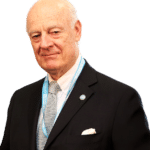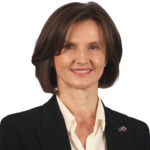MED Panels

Paolo Magri
President Advisory Board, ISPI

Majed Al Ansari
Advisor to the Deputy Prime Minister and Minister of Foreign Affairs and Official Spokesperson for the Ministry of Foreign Affairs, Qatar

Staffan De Mistura
Personal Envoy of the Secretary-General for Western Sahara, United Nations

Melita Gabrič
State Secretary, Ministry of Foreign and European Affairs, Slovenia - Group of friends of Western Balkans
Growing global economic and political polarization is straining international cooperation and undermining multilateral institutions. The United Nations, traditionally a provider of global peace, has been further weakened by ongoing conflicts, such as those in Gaza and Ukraine, and rising rivalries. Additionally, international institutions face criticism for promoting double standards and adequately representing countries in the so-called Global South. In this context, the countries of the wider Mediterranean have a unique opportunity to come together, build a common vision, and propose sound reforms that address the concerns of the Global South, with the goal of creating a more equitable system of global governance. These reforms should improve and build upon existing political, financial, and security institutions, knowing that achieving this will require substantial efforts to redesign both the decision-making processes and the core missions of these institutions.
How can it be ensured that the voices and concerns of the Global South are adequately represented in the reformed institutions? What strategies can be employed to balance the interests of various regional actors while promoting a unified approach to global governance? What role can the Wider Mediterranean countries play in supporting such reforms and improvements?
Subscribe to MED newsletter
Keep in touch with the conference. Don't miss any update.

